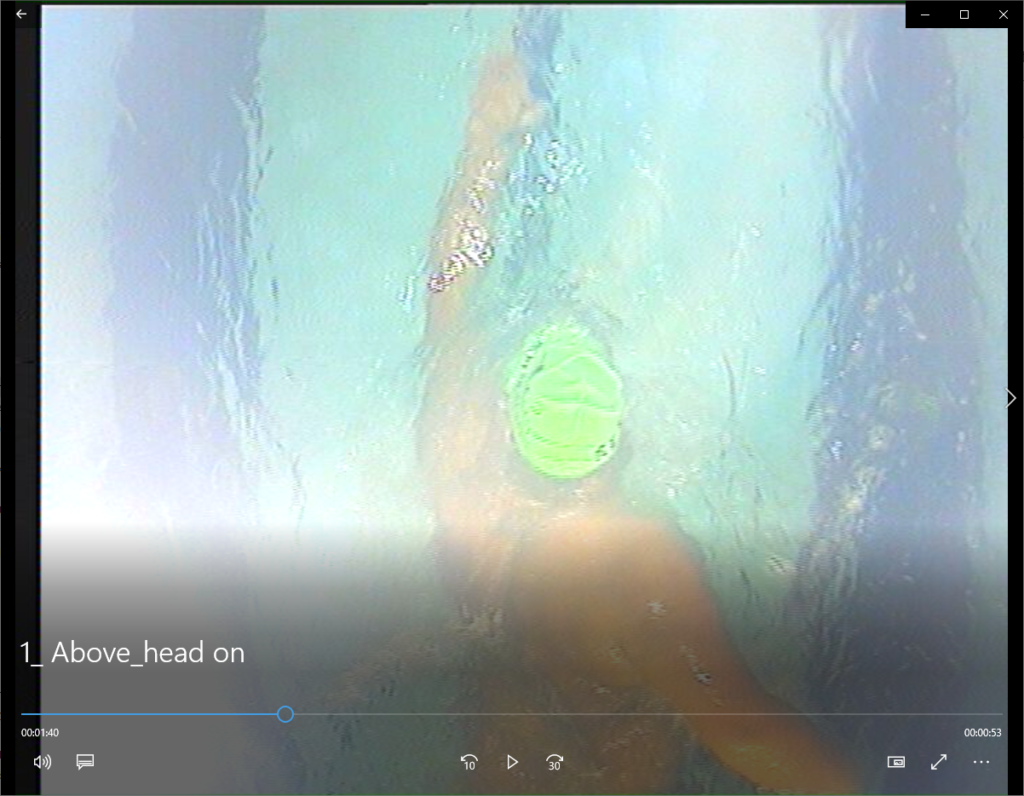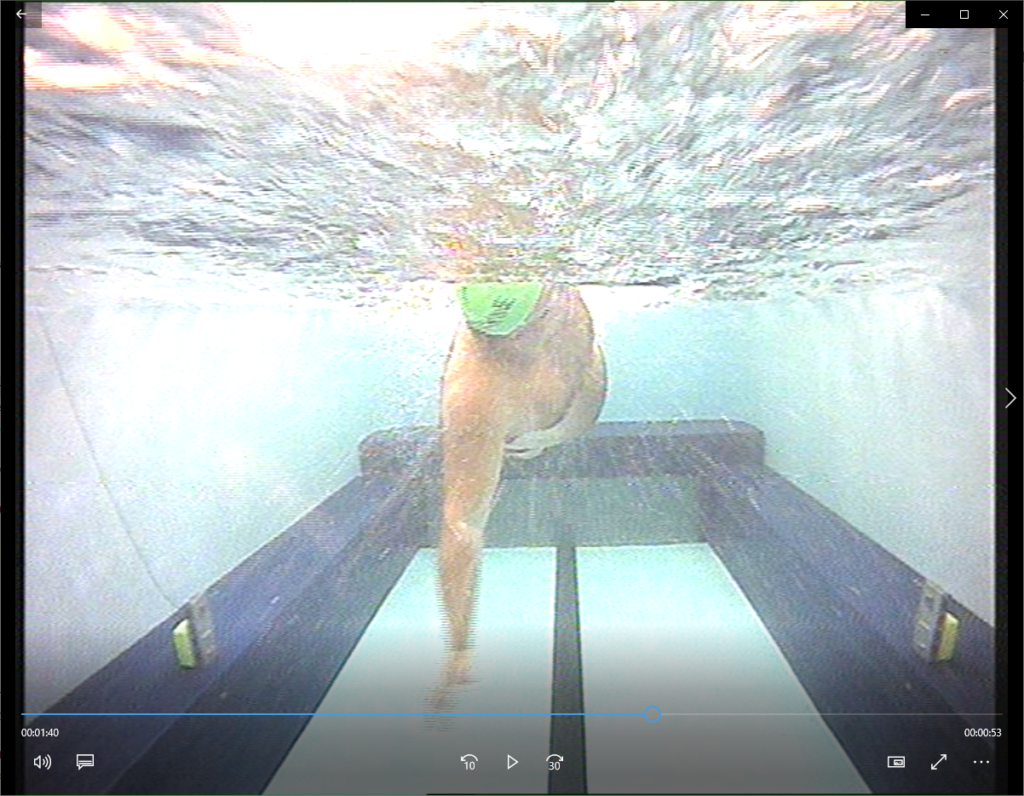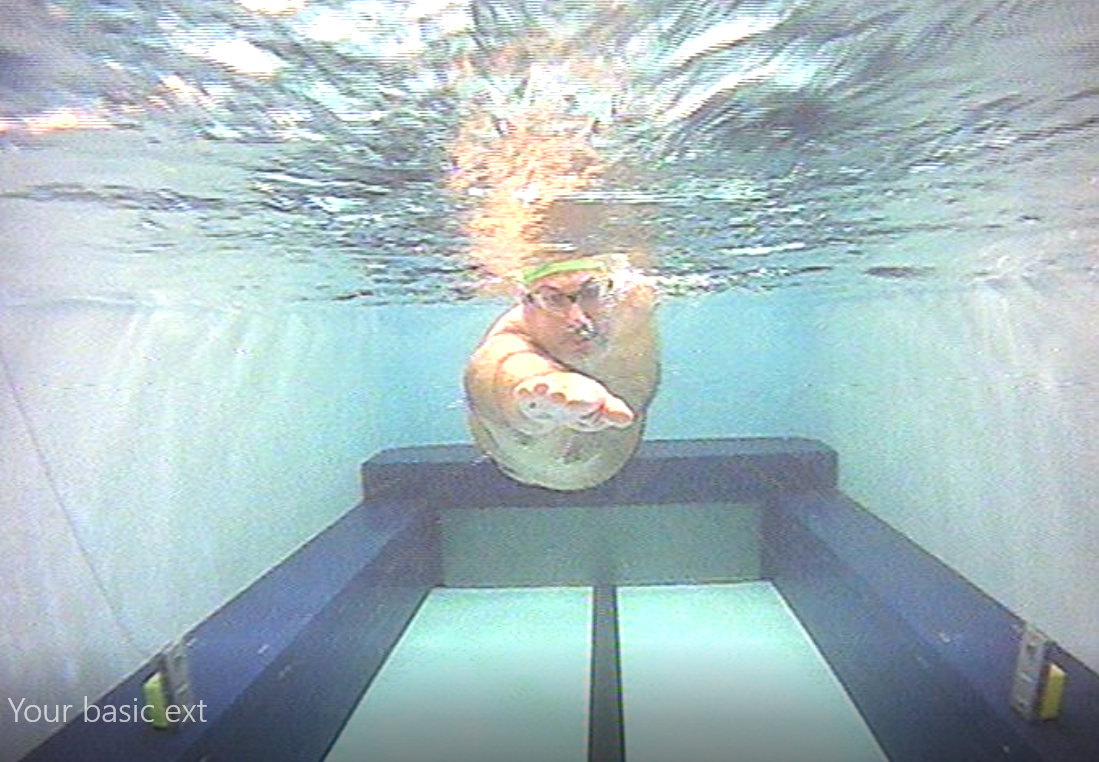Channel Swim 26: Pool swimming keeps channel swimmers honest
When you are facing a challenge that takes you far into unknown territory, there is a time for honesty. Equally, there is a time to tell yourself lies. Sometimes we find a way to keep focused on the lies and we temporarily forget about the other side of things. Eventually, there’s no hiding from the truth; I’ve come to the conclusion that its pool swimming keeps channel swimmers honest.
For me, last year was all about discovering, and revelling in the wonders of open water swimming. I discovered time and again how my body could cope with colder temperatures than anyone sane could ever have expected. Joyfully, I experienced the all day buzz after a winter swim. I learned the tricks to making progress upstream in a fast flowing river. I found the satisfaction of fighting big waves and finishing a swim battered but unbeaten.
Spending my time in OW was what I needed to do, and as the pools were closed for most of the spring I had no other options. This freed me up to ramp up my distance to a level that was orders of magnitude further than I’d swum before.
I knew as we came out from first lockdown that I’d lost a lot of speed in the seven or eight weeks we couldn’t swim at all. I was unworried as I assumed it would come back as I ramped back up.
It never did.
As the pools reopened, I’d switched my focus to OW and was swimming in lakes and rivers instead. Before I knew it, I was finding my feet as a sea swimming virgin. With covid concerns and regulations being put in place by my local leisure center I never returned to swimming indoors. Why would I when I had the chance to swim in cold and challenging, ever changing conditions?
Deep down I knew I was swimming slower than I had been before lockdown. However, like many an athlete before me I simply blamed my Garmin and stopped worrying about it.
Each trip to Dover I was aware that I was usually at the back of the group. I didn’t seem to slow any further as the sessions got longer, and never had an issue with the temperatures but I would always watch faster swimmers lope off at the start of a session and often lap me as we worked our way round the harbour.
I still blamed my Garmin. As the season developed, and as I desperately tried to extend my endurance, there was always something else to focus on other than recovering the lost speed. Often, faced with terrifying jumps in daily distance I gritted my teeth and settled into survival mindset, with endurance my only concern.
Once all was done and I hadn’t managed to make it through the strong currents close to France, I could no longer ignore the thought that my missing speed may have been a huge factor in me failing.
I’d taken some time off, but as soon as the pools opened up again (again!), I got back in to see where I was.
It was a lot worse than I thought.
Barney absolutely destroyed me in the pool.
There’s a lot to unpick in that simple sentence. I do have to make it clear that I’m being horribly unfair to Barney. One of my oldest friends, he’s shared my Triathlon journey. He has gone from being convinced he couldn’t swim (when actually he was only a couple of minutes behind me at our first triathlon) to still being convinced he can’t swim but more than capable of hanging on my feet indefinitely. This neatly takes his still slightly shaky sighting out of the equation. I’ve been dreading the day when he exits the swim on a tri ahead of me for some time. It’s only a matter of when, not if this happens.
I was expecting him to beat me that first day in the pool, but he’s never before flattened me the way that he did. I could see him looking at me with concern.
Some of the problem was that my brain, enjoying being back in the pool, couldn’t understand why my body wasn’t swimming at the pace it was expecting – every time I turned it was like kicking off a fresh sprint and soon I was reduced to gasping at the end. It eventually took three or four pool sessions as my brain and body slowly converged on a sensible pool pace. But this mismatch wasn’t all of the problem. Once that rhythm was re-established I was slower than I was hoping; a lot slower than it had been in February when the pool sessions peaked.
The pool keeps you honest. You can’t tell yourself the river is flowing faster, the waves are bigger, the water is colder or your Garmin is flaky. You just have yourself, and your pace per 100m. While that pace per 100m is not the be-all and end-all it needs to be an important part of my training this year.
And as always I can’t do this alone.
To help me find the speed I’ve been missing I’ve been to see Ray Gibbs at Swim Canary Wharf. Tucked away in the middle of London’s Finance hub, he has a endless pool and a number of waterproof cameras, giving him live video as you swim that he’s well equipped to make devastatingly effective use of. A triathlete himself, he has a visible soft spot for aspiring channel swimmers, and spent a lot of time in our first session making sure he understood where I was and where he needed to get me.

I’d met Ray at the DCT seminars back in February, but while I’d really enjoyed his session, I was convinced I was on top of everything he covered.
As I floated in the pool and Ray kicked off the playback of my initial swim, my first thought was ‘Wow, I look brilliant’. I was quickly, if kindly, disabused of that notion. Ray started off by praising my stable head and neck, then swiftly moved on. He demonstrated that my right arm stays almost entirely straight, like a windmill, throughout the stroke, with very little break of the elbow. While I suspected I’d just been subjected to a ‘poo sandwich‘ (and was still missing a slice of bread), I was fascinated as Ray stepped through my stroke across multiple cameras. He explained I was supporting my body with that arm as I breathed.
I’ve always been terrible at visualising what my body is actually doing, and although I’ve spent hours doing drills in the pool with the tri club it’s not until you can see yourself as someone knowledgeable walks you through what you are actually looking at that you realise there are bits of your stroke that are very different from what you may have always believed you were doing. I would have bet significant money that I had a lovely catch, before being presented with video showing the exact opposite.

As we discussed this issue, it quickly became apparent that the straight arm was causing a number of issues.
- I was losing most of my ‘catch‘ in each stroke.
- I was pushing down, wasting a lot of energy each stroke as the equal and opposite reaction lifted my upper body out of the water.
- This then was pushing down my ‘sinky legs’.
- This makes it very hard to breath efficiently bilaterally.
- This was also affecting the timing of my rotation.
- On top of all of this, I was wasting such a large proportion of my energy that when I tried to swim faster, I was just losing the majority of the extra effort, for no real result. This could be why I’m so obviously single speed.
Ray has promised me he can break down my stroke and rebuild it so I can swim faster next time. I’ve got videos with specific feedback and exercises to work from to allow me to do just that. Most importantly, this should all be ‘free’ speed, with me moving faster for no additional energy input.
Its only now, taking a breath and looking at my technique and how far it is from where I need it to be that I realised just how important the missing pool sessions were for this years channel swim.
But of course, two weeks into rebuilding my stroke, the pools shut again. I need the consistent pool swimming experience now to be able to do good quality drilling and address the issues, before ramping up the distance again in the spring. Right now, it seems clear nothing’s going to open before mid Feb, at the earliest.
At this point, I’m not sure if I’m going to make up the ground I’m losing in time for a proper 2021 attempt.


I’m so concerned about my speed now but the pools are closed under pandemic restrictions. Will you make an attempt in 2021 if the lockdown continues?
Right now, I’m planning to ask my skipper for a much later slot (I’m mid June). I ‘could’ go even if I can’t sort my speed out, but at that point I’ve not addressed the one thing I know is in my power to fix. What kind of speed are you swimming at?
I estimate that I am at about 4 hours 10 km in open water, but still need some real races properly trained and tapered to see where I am.
I should also say I know I can work on the skills in lakes and rivers once they warm up a bit (sea can be a bit challenging for drills) but at the temp it all is right now it’s survival mode only…
An honest appraisal of where you are. The important thing is where you’ll end up!! A lot of fun swims and hard work ahead Stuart. Eat, sleep, swim, repeat.
Thanks Ian, that’s the dream. Hmmmm. Bacon….